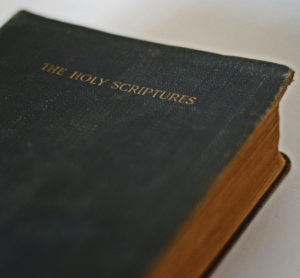 Article: Josh Buice (original source here)
Article: Josh Buice (original source here)
In Acts 6:2O, Jesus’ inner circles was known as “the twelve.” They were serving as the pastors for the early church as it was growing rapidly. However, when a problem arose among the church, servants were established to wait on the tables in order to free up these men to give their full attention to the Word of God and prayer.
The pattern of ministry all throughout the New Testament is clearly established upon a plurality of elders leading and a plurality of deacons serving. Although this is not an blemish-free ministry pattern, it does provide for the most healthy scenario for discipleship in the local church.
Deacons, Elders, and Discipleship
When pastors are free to give themselves to the Word of God, the church will benefit drastically. The pastors who put more priority on pragmatics and less priority upon the study of God’s Word cannot expect their church to rise above their leaders. Interestingly enough, in Acts 6, the early church became united through the deacon ministry and this allowed the pastors to immerse themselves in God’s Word. As the Word of God increased, souls were saved in the community. Consider this pattern over against today’s church growth pragmatism that typically downplays doctrine.
Behind every great group of pastors is a great group of deacons. When deacons serve to the glory of God in the local church, the pastors can spend necessary time in prayer for their people. A church that places little emphasis upon prayer is often a direct reflection of their leaders. Such a church marches on in the power of pragmatism rather than the power of the Holy Spirit. No matter how much technology increases and how efficient we become with modern ministry tools—nothing can stand in the place of the power of prayer. Pastors who pray well often lead well. Pastors who spend time praying for disciples and teaching new disciples how to pray will go forward in the power of God. Prayer is essential.
Discipleship as an Intentional Goal of Ministry
Beyond the need for pastors to work in tandem with deacons for the work of discipleship, pastors must likewise plan and work with intentionality to disciple the church. It is the goal and responsibility of pastors to equip the church for the work of ministry (Eph. 4:12). Pastors are not entertainers or leaders of ministry events—pastors are shepherds who oversee and equip believers to live the Christian life faithfully.
One single pastor who tries with all of his heart and soul to equip the entire church on his own will fail. If the church is larger than a small group, help is required to faithfully shepherd and equip the saints. This is why God designed the church to be led by a plurality of elders who would share the burden, responsibility, and work together in the effort of equipping the church to stand strong, love passionately, and reach their community with the gospel. Intentionality in the area of teaching, conversations, and being an intentional example to the church is vitally important (1 Pet. 5:3).
The greatest single pastor will not be nearly as strong as the wisdom of a collective body of pastors who put their minds together and serve as a single unit to lead the church. The weaknesses of one pastor is strengthened by the strengths of another pastor who works alongside him in the life of the church. This provides the pastors the ability to make well rounded disciples who become strong and vibrant disciple makers who multiply year after year.
Why does a football team have multiple coaches? Why does a business have multiple layers of team members who work to make the company successful? Although we never build theology on logic alone, such logic stands firm upon the foundation of God’s Word that points out the pattern of a plurality of elders who serve in each local church throughout the Scriptures. A plural group of men investing their time and energy in making disciples will always lead to a more healthy and robust church. Mark Dever writes:
The Bible clearly models a plurality of elders in each local church. Though it never suggests a specific number of elders for a particular congregation, the New Testament refers to “elders” in the plural in local churches (e.g., Acts 14:23; 16:4; 20:17; 21:18; Titus 1:5; James 5:14). When you read through Acts and the Epistles, there is always more than one elder being talked about. [1]
While a plurality of elders does not serve as a bullet proof defense against all church related errors, it does create a natural culture for disciple making. Be grateful for your pastors. Often a local church has a diverse group of men who lead, and this is a healthy pattern that often compliments the elders and strengthens the entire church. How is your church doing in the area of discipleship? How could you pray for your pastors as they lead in this upcoming year?
Mark Dever, Nine Marks of a Healthy Church, (Wheaton: Crossway, 2000), 215-216.

